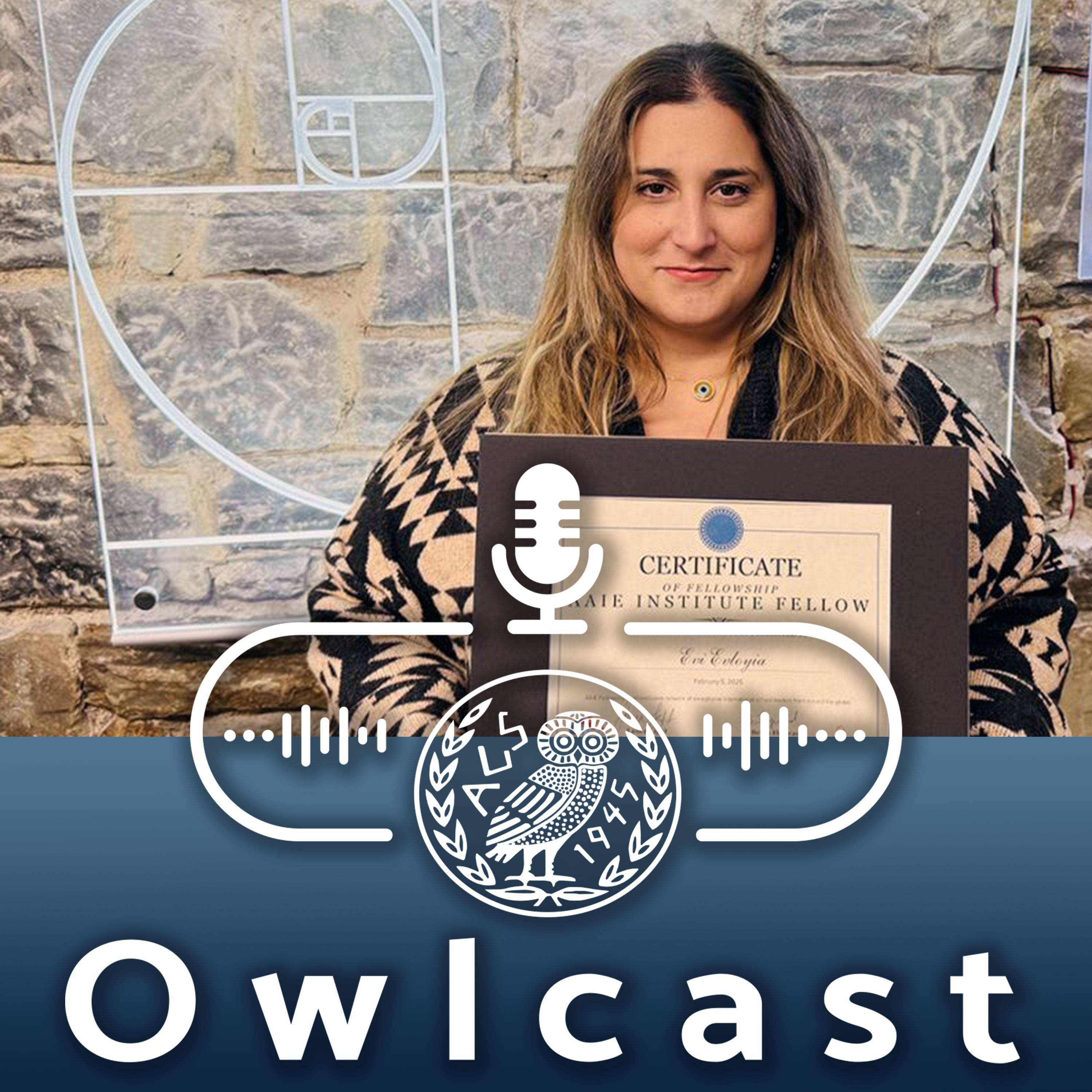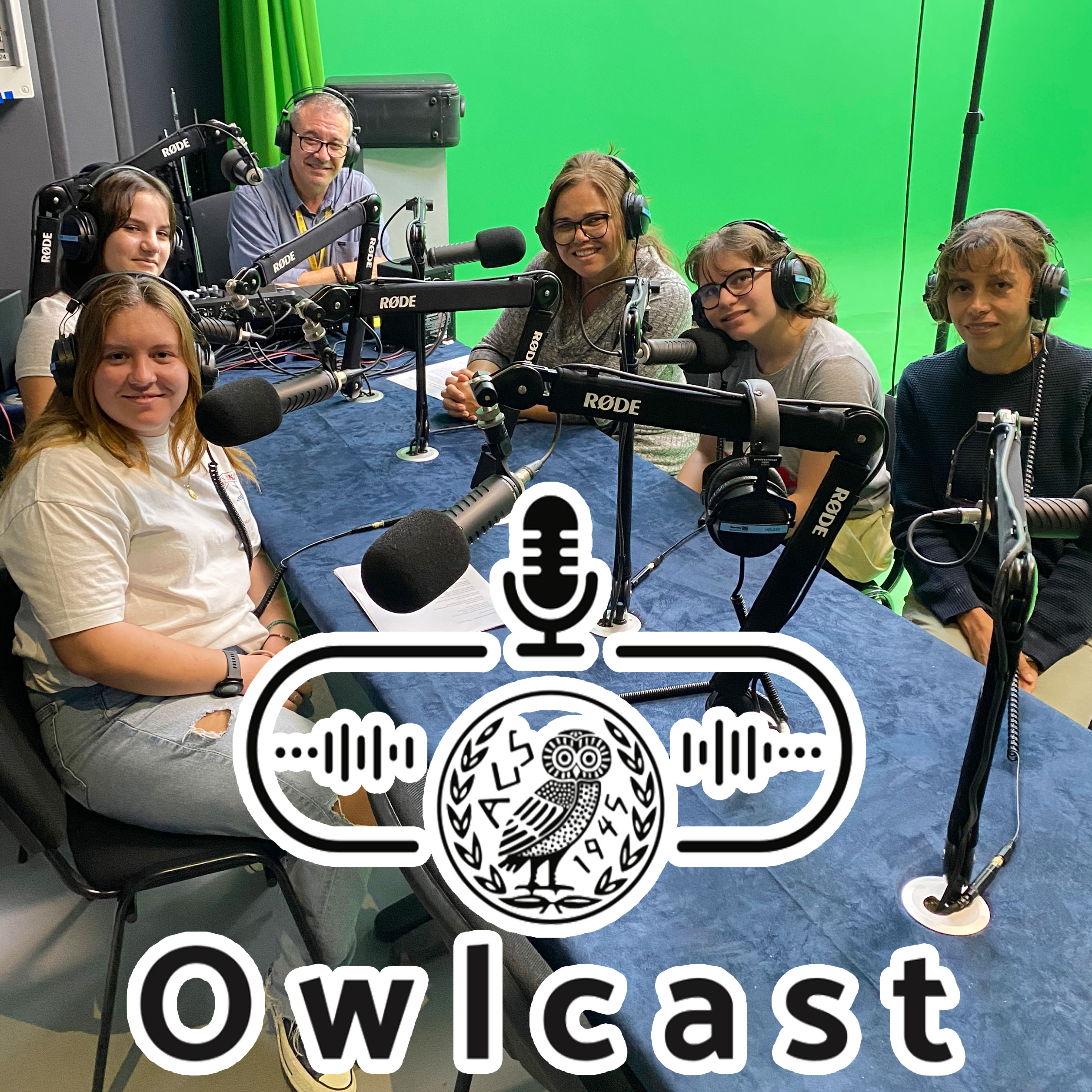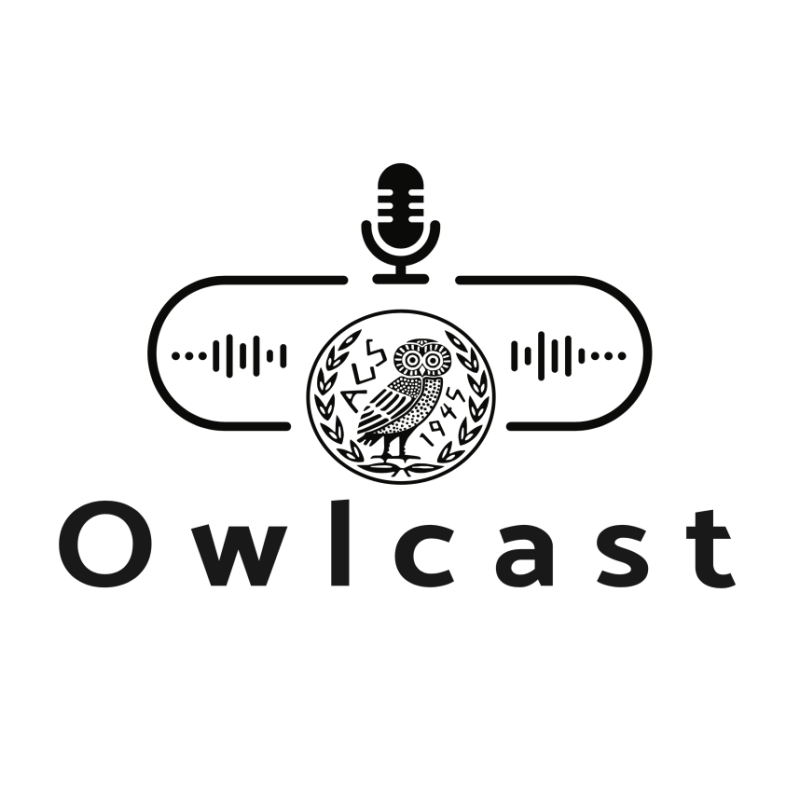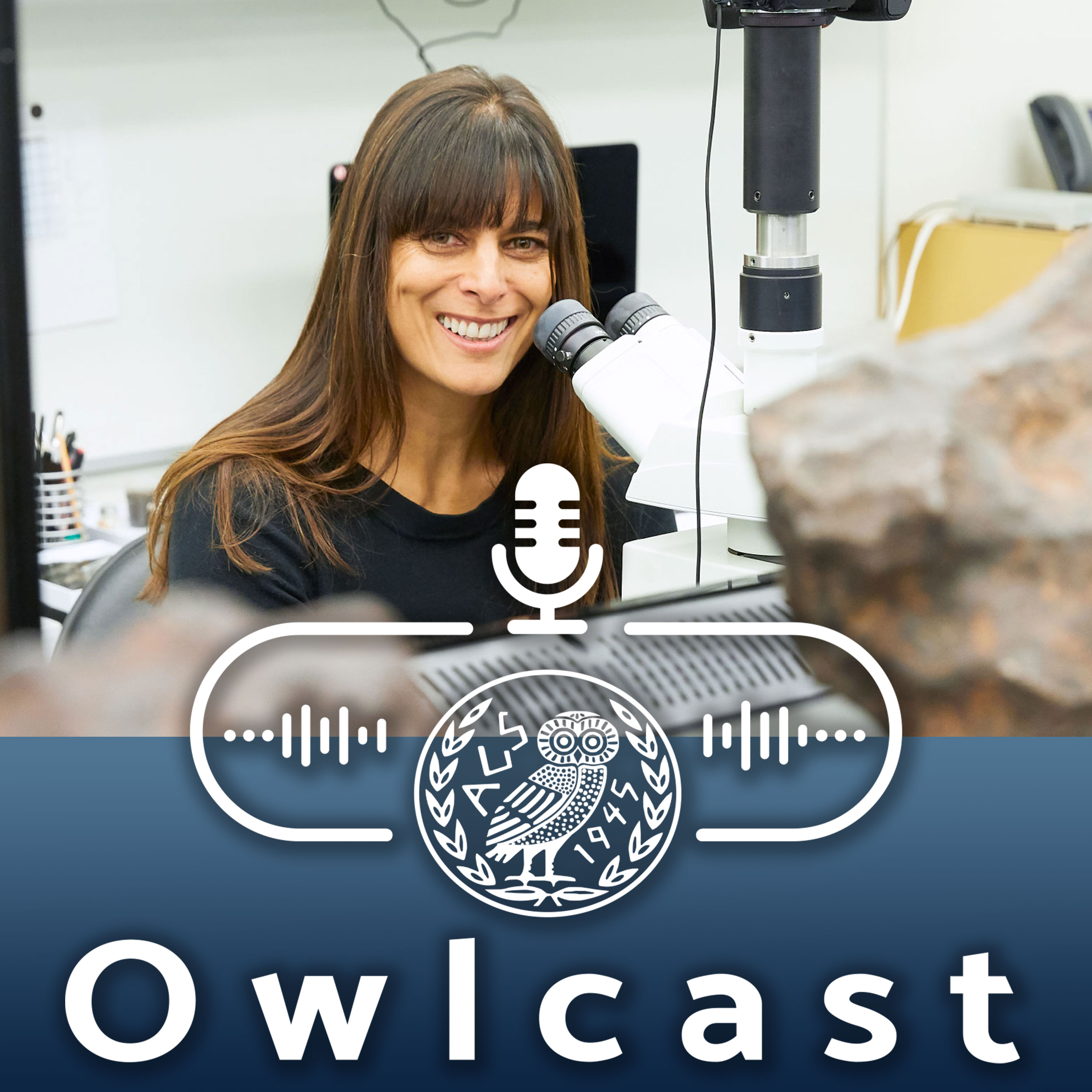Episode Transcript
Introduction:
John Papadakis: At ACS Athens, the Optimal Learning Program (OLP) is built on a simple but powerful belief: every child learns differently. Coordinator Evi Evloyia who leads the OLP, brings that message to life every day with her team of specialists, teachers, and administrators. “Every brain is unique,” she says—and everything they do stems from that idea.
In a diverse school environment like ACS Athens, students come from different countries, speak different languages at home, and have varied academic backgrounds. To meet their learning needs, the OLP takes a thoughtful, personalized approach. It starts with getting to know each student well. “We spend time inside and outside the classroom, observing students academically and socially,” Evi explains. These insights are turned into learning profiles that guide every teacher who works with the child.
When concerns arise—whether a student is struggling or needs extra challenge—the school’s Child Study Team steps in. This team includes administrators, counselors, learning specialists, and psychologists who work together to assess the student’s needs and decide on next steps. Crucially and most consequentially, the team also brings parents into the conversation, using clear examples and data to guide productive dialogue.
Support can come in different forms. Some students work with specialists in the OLP room during specific times (pull-out support), while others benefit from having specialists join their regular classes to co-teach (push-in support). Evi points out that push-in sessions are not just for students—they also help teachers see inclusive strategies in action. A recent study from an international school in Indonesia backs up this flexible model: students in structured push-in/pull-out cycles showed stronger critical thinking than those in traditional settings.
At the heart of the OLP’s success is not just where support happens, but how teaching is done. ACS Athens invests in training new and returning teachers in Universal Design for Learning (UDL)—a framework that helps all students by offering multiple ways to access content, engage with lessons, and show what they know.
This approach isn’t just about helping students who are struggling. Differentiated teaching—especially through small group work during class—benefits everyone. Research shows this kind of grouping leads to better outcomes across the board, not just for those with learning differences.
Evi has also seen how parent involvement has grown, especially since the pandemic. Families now arrive more aware of their children’s learning styles and more open to early intervention. The OLP team builds trust by sharing clear evidence—student work samples, observations, and follow-up plans—so that families feel part of the process.
Reflecting on her time leading the program, Evi says the biggest win has been strengthening a school culture where everyone—teachers, specialists, administrators, and parents—shares responsibility for student success.
In a world where learning differences are more visible and educational expectations keep rising, the ACS Athens model shows what’s possible. Assessment is used as a tool for understanding, not judging. Support is flexible and tailored. Teaching strategies are inclusive and up-to-date. And above all, the belief remains clear: when schools plan for learning differentiation, every learner—no matter their background or profile—can thrive.
This is Owlcast! Stay tuned for our discussion with the Coordinator of the Optimal Learning Program, Evi Evloyia.
John Papadakis: Welcome to the Owlcast. Ms. Evloyias, with the opportunity of the certificate you got of fellowship from the Association for the Advancement of International Education.
What is the significance of the certificate you received? Why did you decide that this is going to be a beneficial process for you? It's a matter of some courses that you got correct.
Evi Evloyias: Thank you for inviting me. After I'd say, eight years of teaching, I felt like I needed something more. A lot of the skills I had in the classroom. I wanted to reach out to other teachers and kind of be like a mentor to them. But in order to do that, I felt I needed to take some leadership courses. Something to advance my own skills. I saw the AIE classes and I completed seven courses. And these were in variety of leadership.
John Papadakis: Can you describe some of these courses?
Evi Evloyias: Some were on ethical leadership within the school setting. Looking at the mission and vision of the school, the governance, leading staff, even the management. So I spent a lot of time coming up with business proposals or different programs within the school to help for different needs in the school that I had created from scratch. So it was nice to have ACS as a model and then implement my own school and create all these.
John Papadakis: So you were using ACS as your case study?
Evi Evloyias: Yes, it started off as ACS as a case study, but for my own use with less students, but took a lot of the issues at the time of COVID and a little bit after as well, and the social emotional needs of students and based a lot of the needs from there.
John Papadakis: How long did it take for. For this cycle of courses to be completed?
Evi Evloyias: It took me approximately a year to finish all seven courses teaching at the same time. So yes, it was a struggle, but it was something really worth doing.
John Papadakis: This is a question, I guess, for many of our staff, because a lot of our staff are going to other organizations and they talk about what we do here and you also see what's out there in your mind. Did you do any comparison on our practices versus what other people do from the ones that you met, or did you have interactions with other colleagues from other schools?
Evi Evloyias: I had interactions with approximately 20 other educators that were doing these courses. And it was nice because it was a cohort. So the majority of us took all seven courses together. So we got to know a lot about each other's schools. It was very interesting to see a lot of the commonalities we had, but at the same time how some different aspects of the economy of some of the countries that these educators were in were not doing very well and how that affected their schools. While for us taking ACS as my model school, it was more of the social, emotional and what are the needs after Covid. So the focuses were very different. But it's very interesting to see the different perspectives and how each school deals with things differently.
John Papadakis: Can you share something that really surprised you or made an impression to you as you went through this course?
Evi Evloyias: I think the vision and missions of each school were very surprising because although all of them had a commonality of creating holistic students and seeing becoming architects of their own learning, as we want to say here at acs, but they use different terminology, it was interesting to see how each school had a specific focus on either it was a lot more on focusing on the Sustainable Development Goals, or if it was more of standardized based testing and reaching students to their maximum potential through that.
John Papadakis: And in your capacity as the director of the Optimal Learning Program, at this point, did you see other schools having a similar approach to supporting students?
Evi Evloyias: It was interesting. A lot of them had just began having CEN programs in their school, which was quite shocking because at acs, the OLP program has been in effect, at least for the past 18 years, as a structured model and even more before that. So it was interesting for them to get the aspects and to see how we do things at acs. And they also took a lot of our models and started implementing them. And I still keep in touch with a lot of these educators who now have administrator roles in their schools. And they thank us for having such a great model that they can work from and implement it and make it a good fit for their school as well.
John Papadakis: Well, your role here in the school is, I would say, hybrid between an administrator and an educator. I mean, is there. There is no doubt about this. You go to classes, you work with students, but at the same time, you coordinate the program for special learning.
What do you think in general about our OLP program? What do you think we should be inclusive in the support we offer to students and how does our approach help them to meet their learning needs?
Evi Evloyias: I think it's very important to always think that every child is unique, every brain is unique. So thinking of the students holistically and individually is the base of their success. What we do in the Optimal Learning Program is we really get to know the students inside the classroom, outside the classroom, where they are cognitively, where they are academically, and create a student profile for them which we address to the teachers. And therefore, the teachers are able to help the students in the OOP program succeed in their classes. And at the same time, Offer them the skills they need in order to become independent later on in their life. For example, a student that struggles with writing can use speech to text tools to help them. So we offer them alternative ways and tools that they can use to succeed.
John Papadakis: In their life in general, would you describe our program as we call it pull out, push in or something independent of what's going on in the classroom?
Evi Evloyias: We have different programs within the oop. Yes, we do have the push out within which is our OLP classroom and we have our consultations which are once a week with the students. But we also go into the classrooms trying to co teach with the students. And this way we also create professional development opportunity for our teachers to advance their skills and differentiation.
John Papadakis: Yeah, exactly what I wanted to ask you. We have teachers that have come from different backgrounds, from different nationalities. How do you approach these to either explain or convince them or tell them what they need to be aware. When they go to a classroom where you have students with different learning needs, what is the discussion that you have with them?
Evi Evloyias: First of all, we give examples of students that have been successful and I think starting from there it becomes more personal and there's a purpose to why we have to make that extra step in order to help all the students succeed within the classroom. We do use a lot of UDL approach, which means we don't focus on the weaknesses, but we focus on the strengths of all the students in order to help everyone within the classroom setting. When new teachers come in to acs, we always have our professional development in the beginning of the year where we meet with them and we go over differentiation tools, differentiation techniques and things they can use in the classroom to support all student needs.
John Papadakis: Before we go to the process of providing accommodations or providing support, there must be a process of assessing either the student or the teacher who is coming to the school and tries to figure out how we work. So what is this assessment that you do? What's the mentality behind it?
Evi Evloyias: So before we ask for students to be assessed, we get teacher recommendations, we observe in the classroom, we talk to the specials teachers. So everyone is involved. And then the child study team at ACS comes together and that's the, the principal, the counselors, the OP coordinator, specialists, our clinical psychologist, and we deem what's the best path for the student. That's when if we see there are struggles and it could be social, emotional struggles, academic struggles, focusing struggles, we come up with a plan and then we recommend to the parents that we would like their child to be tested.
John Papadakis: You mentioned before The COVID situation, have we observed a spike in the social emotional needs or the academic needs of students? And maybe if we see also a similar spike in the way that the teachers are either accommodating or come to you for support?
Evi Evloyias: Absolutely. I think this is also a global increase that we see. It's not just within acs. The learning differences have increased drastically, especially in reading and writing. And social emotional setback we saw was students working together, not being able to work in groups. They lost that social aspect and the communication with their peers. Globally, we have seen that the numbers have definitely increased throughout the years. The learning differences for students have increased as well. A lot more diagnosises. And luckily, we've observed that this has come back. So definitely this is something we're happy about.
John Papadakis: How about the parents? Do the parents come more after what we went through to come and tell you? You know what? I think that there should be some kind of intervention with my kid?
Evi Evloyias: I feel parents are a lot more observant with the kids at home right now, especially during COVID when they got to see how their children reacted and be part of the classroom virtually as well. So they are a lot more open to discussions, and at the end of the day, they trust the processes, they trust the school. And when we ask for an intervention that needs to be taken consideration, they accept.
John Papadakis: You mentioned the child study team. I think that this is something that is quite unique in our approach.
It's not just someone who recommends and the parent come and says, yes, I want to do this intervention. It's a collective observation. If I might say, how would you describe this particular situation? And is it for all grades?
Evi Evloyias: Yes, this is for all grades. It's elementary, middle, and academy. The child study team comes together and we discuss, as you said, collectively, the student needs and what needs to be addressed.
John Papadakis: So we have the teacher, we have.
Evi Evloyias: The counselor, the principal, the vice principal or assistant principal, the clinical psychologist, the counselor, the OLP coordinator, and our OLP specialists.
John Papadakis: And that particular team comes for every kind of situation, not only for the one or two students, correct?
Evi Evloyias: Mm. Yes. It could be for behaviors. It could be just observations that teachers have within the class and they're concerned about a student. It could be for social, emotional reasons. Anything that's a little more alerting. We come together and we discuss and come up with an action plan.
John Papadakis: And the action plan then is being discussed with a parent, correct?
Evi Evloyias: Yes, the communication with the teacher and the parent. And then we work together to make sure that the action plan is implemented for the best of the child.
John Papadakis: So although you have an extensive experience in education, your role as the leader at optimal Learning program is quite new. This is your second year.
Evi Evloyias: This is my first year.
John Papadakis: So it's your first year as a leader of the program. What has been the biggest challenge, but also the biggest satisfaction from your role so far? If you can reflect back this one year?
Evi Evloyias: I believe the biggest challenge in the beginning of the year was how do we work collaboratively with everyone and making sure that all teachers and administrators and everyone in the school believes in the same vision that we have for our OLP program. And by working together and creating a great rapport with the teachers, we have been very successful and making sure that all our student needs are met. So although this was my biggest challenge or fear in the beginning, it has been a great success.
John Papadakis: So the admissions office comes to you and they have a family who is getting ready to apply for admission.
From the academic records and from the discussions with the family, it is evident that the student might benefit from learning support, but the parents are in denial. How can you convey, if they come to you, how can you convey to this parent the importance of identifying individual needs?
Evi Evloyias: The best way to convey this is by having facts showing the parents specific student examples or observations that were made, so they start being more alert as well.
John Papadakis: This is a new parent, so we don't know. We haven't observed the student or anything. We just have documentation from either the previous school or from the discussions with the parents.
Evi Evloyias: Okay, so no interview with a student yet. We would ask for a parent for a student interview, and then this usually takes approximately 45 minutes to one hour.
John Papadakis: Is it with a parent present or just the student?
Evi Evloyias: It is mostly usually just the student. However, when the kids are younger, if they feel like they need their parent next to them, the parents can also be within the interview.
John Papadakis: Which ages are more conducive to this kind of discussion? Is it for all ages? Is it, you know, kindergarten and up? Is it first grade and up, or is it all ages?
Evi Evloyias: Kindergarten usually is the first alerts that we see. Either the student might need occupational therapy or speech therapy. So in the interviews, we try to identify these parts as well. We look at the pencil grip for the student. So we do want. When the students enter acs, we're able to give them what they need in order to succeed. And what interventions in this case, if we see a student with their pencil grip and their handwriting not being on par to the grade level or not reaching specific milestones, we would recommend additional interventions.
John Papadakis: Well, I'm pretty sure we're going to have this discussion again in the future because this is a. An ongoing situation with students who are coming in. And in your educational journey up to now, can you think of a moment that inspired you to do what you do, to become who you are? Maybe an individual or an activity or a circumstance or something that happened to you?
Evi Evloyias: I was taking a leadership class at ACS, led then by Dr. Polonas, Mr. Medeiros and Dr. Yellamas. And one of the questions they asked, what kind of a leader do you want to be? Or how do you envision yourself?
And that's when I started really reflecting on what leader do I want to be.
John Papadakis: What was your role at that particular point?
Evi Evloyias: I was a fourth grade teacher. And at that point I just. I felt like I wanted something different. I wanted to. To spread a lot of my knowledge and be able to make changes. I'm a strong student advocate. And I think this also comes from being an alum of ACS and being at ACS for 14 years. ACS is more than just a workplace for me. It is a home. It's a community. And we care for our family, we care for our community. And this is what I felt. I wanted to expand my knowledge, help other teachers and educators, specialists, see students the way I perceive students, how to help them within my classroom. And this is where I started looking at different options and leadership courses. And what triggered was when they asked me, what kind of a leader do I want to be? It took time to really reflect on what do I want for myself? Where do I see myself in the next five, 10 years? And this is where all began. That was the seed to taking these courses. This was the seed of figuring out what is the next step.
John Papadakis: Well, Ms. Evloyias, thank you so much for coming to the Owlcast and talking to us about your experience in the Optimal Learning Program. But also congratulations for your fellowship at the association for the Advancement of International Education. We'll be in touch again because the program is ongoing. So thank you so much for being here.
Evi Evloyias: Thank you.



